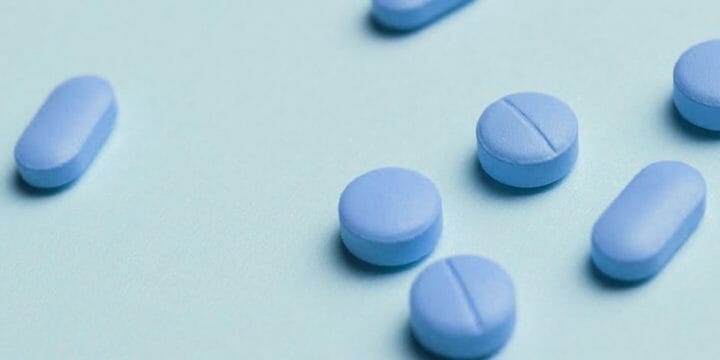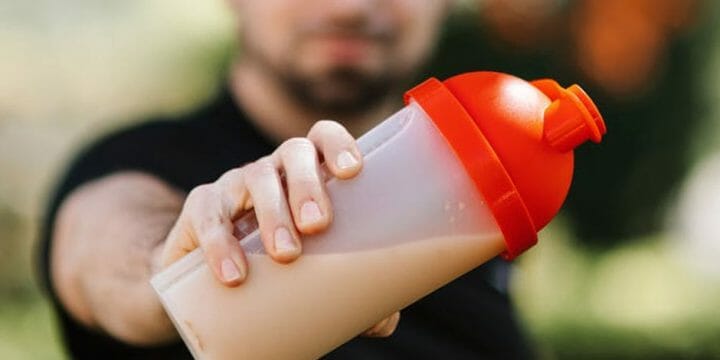If you're immersed in the world of nutrition science, Peter Attia's name probably rings a bell.
As a medical doctor with a zeal for optimizing human performance and longevity, Peter harnesses the power of nutrition, supplements, and exercise to forge new frontiers in health.
After countless hours poring over his articles and tuning into his podcasts, with the help of my nutritionist and doctor, I feel ready to unpack his nuanced approach to dieting and supplements for you.
Attia's Supplements Over The Years
I've closely followed Peter's evolving dietary approach over the years.
Just like him, I transitioned from a strict ketogenic diet to a broader low-carb regimen, and it's interesting to see how our supplement choices align.
So, what I want to do in this section is show you how things have changed based on the interviews we found.
You can also check out supplement recommendations another health niche celebrity, Dr. Rhonda Patrick, has revealed.

2011 - Blog Post
- Magnesium (400mg)
- Potassium (200mg)
- Fish Oil (10ml)
It seems like Peter was still in the very early stages of research with supplement choices in 2011. And I find it a promising sign that he took his research seriously and only added new products when research supported it.
2012 - Interview
- Multivitamin
- Fish Oil (10ml)
- BCAAs (3g)
- Glutamine
In his 2012 interview, Attia refined his supplement stack, introducing a multivitamin, glutamine, and BCAAs. This shift indicates a deeper dive into the synergistic effects of individual supplements on performance and recovery.
2015 - Interview
- Vitamin D
- Baby Aspirin (1 per day)
- Methylfolate
- Vitamin B12
- Fish Oil (10ml)
- Berberine
- Probiotic
Two things stood out for me in this interview. Firstly, it’s clear that Peter has switched to taking individual vitamins rather than a multivitamin.
Secondly, he’s added aspirin to help reduce the risk of blood clots. That may be due to the fact that he flies a lot.
I would suggest getting medical advice before taking aspirin regularly, as there could be some unintended side effects. With these medical professionals' advice, you will prevent some potentially dangerous situations stemming from unknown factors like allergies.

2016 - Book Chapter
- Vitamin A and E
- Vitamin K
- Vitamin C
- Magnesium
We took this information from a chapter in Tim Ferriss’ book Tools of Titans. It’s very clear that the recommended approach now is to stay away from multivitamins and switch to individual products.
2018 - Podcast
- Vitamin D
- Methylfolate
- Vitamin B12
- Lithium
- Fish Oil
- Selenium
- Baby Aspirin
- N-acetylcysteine
- Curcumin
- Magnesium
This is possibly one of the most comprehensive lists he has shared on his podcast in an Ask Me Anything episode.
It’s a long list of minerals, vitamins, and amino acids.
Not all of them might be necessary for everyone. For example, berberine is linked to insulin resistance and may only be needed if you’re at risk of type 2 diabetes, as per a study published in the eCAM journal [1].
The two things that have remained consistent since 2011 are magnesium supplementation and fish oil.
Recommended Supplements
- Vitamin D
- Methylfolate
- Vitamin B12
- Lithium
- Fish Oil
- Selenium
- Baby Aspirin
- N-acetylcysteine
- Curcumin
- Magnesium
Peter Attia's supplement recommendations are the culmination of his lifelong dedication to studying wellness and longevity.
Our team has carefully reviewed his selections, curating a list of supplements that are not only effective but also carry minimal risk of side effects or adverse results.
Omega-3 Fish Oil - Viva Naturals
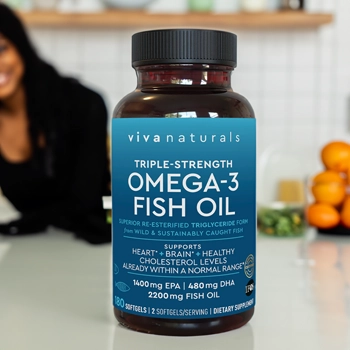
Fish oil is the one thing that Peter has been taking continuously.
But you’re going to need to pay close attention to the balance of EPA and DHA and the quality of the oil as well.
Viva Naturals claims to have formulated its oil in a precise balance for maximum heart health benefits.
- It might be the fastest fish oil to digest
- Claims to be the best formula to prevent heart disease
- No reports of fishy burps and aftertaste
- Some people recommend a combination with Omega-6
Magnesium - Performance Lab Sleep
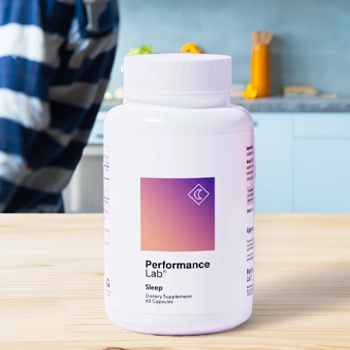
Most people choose a standalone magnesium supplement, which can work well for most people.
But our research and experience have found that with just a few extra ingredients, you might be able to speed up your recovery and get better rest.
This Performance Lab supplement is what we recommend taking after an intense exercise routine or strength training.
Our clients have all provided positive reviews, as they find they wake up the next morning with less stiffness.
- Includes melatonin to help get to sleep faster
- May promote better sleep and physical recovery
- Free from the most common allergens
- Some mild stomach discomfort is possible
Vitamin D - Transparent Labs
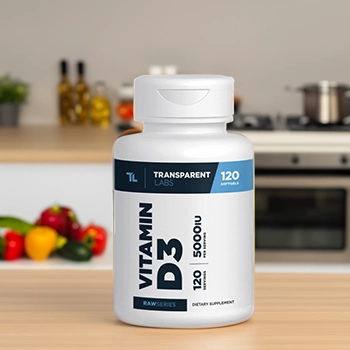
Transparent Labs is the vitamin D supplement recommended by all the nutritionists we talked to.
We have encountered several clients who may have improved their bone density with the right combination of exercise and this D3 supplement.
It’s not a miracle pill, but if you give it time, then it should show some significant benefits.
It also seems to help us with a boosted immune system, which may help to avoid the common cold.
- A strong dose of D3 for better immune responses
- May increase bone density and improve muscle performance
- Completely transparent label with no added fillers
- You’ll need to place a bulk order to get free shipping
Multivitamin - Performance Lab NutriGenesis
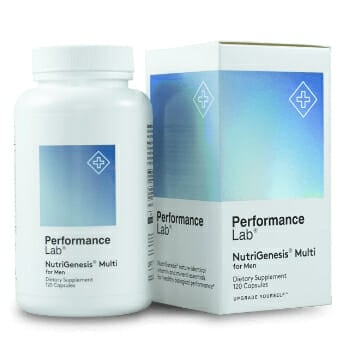
I know that Peter Attia doesn’t really recommend taking a multivitamin, but I believe that is based on the fact that many of them are of low quality.
This Performance Lab option claims to use different methods of extracting and producing vitamins to make them more efficient and easier to absorb, potentially addressing some of the concerns about the effectiveness and bioavailability that are common with standard multivitamin formulations.
- Available as a male and female formula
- Includes essential minerals to support many body functions
- Most vitamins and minerals are dosed strong enough to cover the daily need
- You’ll need to take four capsules per day
BCAA Glutamine - Transparent Labs
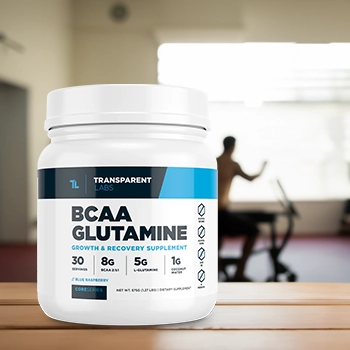
We recommend this “repair and recovery” supplement to our bodybuilding clients and athletes to reduce exercise fatigue, increase post-workout muscle growth, and accelerate fat loss, among other benefits.
BCAA Glutamine’s ingredients are included in clinically effective dosages and contain no artificial sweeteners, coloring, or preservatives.
Its 100% transparent formula is also definitely a bonus.
The company suggests taking two servings of this product per day for maximum results.
- Increases muscle growth, reduces post-exercise fatigue, speeds up fat loss, and improves workout performance
- Gluten-free and non-GMO
- All ingredients are backed by scientific research
- Some customers say the flavors taste awful
Vitamin B12 - Live Conscious Vegan 12
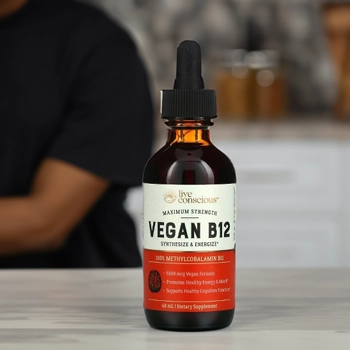
B12 is an important supplement for vegans, but many non-vegans may also become deficient.
But rather than take one large dose, this Live Conscious (formerly known as Livewell) product may give you the flexibility to measure a more precise amount.
We’ve seen plenty of positive reviews about it helping as a mood and energy booster as well.
Most people are reporting that they may notice some health and mood improvements within about two weeks.
- Comes in liquid form for more precise dosage
- Positive comments about it showing signs of working within a few weeks
- Certified vegan option to suit more diets
- The bulk discount offers are a bit limited
Probiotics - 1MD Complete Probiotics Platinum
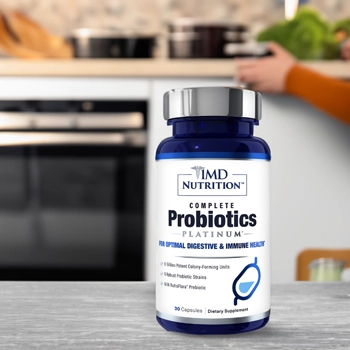
1MD seems to be the favored probiotic among dietitians, mainly because it claims to have a large enough volume of live bacteria.
Many people have reported significant benefits to their digestive issues, which may be due to the fact that it contains 11 of the most important gut bacteria, ensuring a comprehensive approach to gut health by targeting various aspects of the digestive system.
- May provide over 50 billion colony-forming units from 11 strains
- Added prebiotic fiber to further help feed good gut bacteria
- Free from the most common allergens for less chance of a reaction
- Some people find the capsules difficult to swallow
Curcumin - Performance Lab Flex
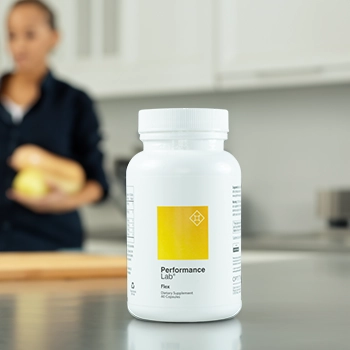
You can get pure turmeric powder to add to meals or even in supplement form.
But because one of the main benefits is relief from joint inflammation, we suggest you consider this Performance Lab product.
The formula contains proven ingredients that may have significant benefits for preventing most joint issues.
- Contains added ingredients to help improve joint health
- May help with pain relief through anti-inflammatory benefits
- Suitable for daily use as it’s free from common allergens
- Free shipping is only available on orders over $100
What Is Peter Attia’s Approach To Diet?
I've spent countless hours poring over Peter Attia's blog and tuning into his podcast episodes. His approach to diet has been kind of a game-changer for me.
To create the TLDR version, I’ve had a nutritionist summarize it with me.
So, here are three aspects of the Peter Attia diet:
Calorie Restriction
This is one of the most common ways to approach dieting, alongside sunlight exposure. It means that you eat less energy-dense foods and try to exercise more to achieve a net negative calorie intake.
It also ensures you avoid exercise-induced stress.
Intermittent Fasting

This is not about spending days without food and only taking in water. Peter says that he often skips breakfast and a morning snack altogether.
His first meal is often a late lunch, but he still does some fast exercise.
Admittedly challenging, this method receives support from a 2014 study in the Journal of the International Society of Sports Nutrition, which validates it as an effective strategy for weight management [2].
If this phenomenon is a bit hazy in your memory, check out this guide we created for intermittent fasting beginners like you.
Food Restrictions
Peter has been a long-time advocate of limiting carbohydrate intake and used to be on a strict ketogenic diet.
“My approach focuses on increasing lifespan (delaying the onset of chronic disease), while simultaneously improving healthspan (quality of life). To do this, my practice applies nutritional biochemistry, exercise physiology, sleep physiology, techniques to increase distress tolerance, lipidology, pharmacology, and endocrinology.”
- Peter Attia, MD
That has slightly changed over the years, but Peter Attia still avoids sugary foods and highly processed carbs.
His overall philosophy in these three areas is that you should try to trigger at least two of them at a time. But for the best results, you may want to try to cover all three of them as often as possible.

Who Is Peter Attia, MD?
Born in Canada, Peter Attia is a medical doctor trained at Stanford University. I remember first coming across his work a few years ago, and it truly resonated with my own health journey.
Before becoming a renowned figure in the world of medicine and longevity, Peter Attia embarked on a journey that began in his formative years.
His early life experiences, combined with a deep-rooted passion for health, laid the foundation for his future endeavors.
View this post on Instagram
After a stint as a surgical resident at the Johns Hopkins Hospital in Baltimore, Maryland, Peter Attia started to branch out into nutritional science and peak human performance.
Today, recognized as a leading medical scientist, Peter Attia has been featured on prominent shows and podcasts, including those of Tim Ferriss and Joe Rogan, and has collaborated with figures like Michael Dell.
References:
- https://www.ncbi.nlm.nih.gov/pmc/articles/PMC3310165/
- https://jissn.biomedcentral.com/articles/10.1186/s12970-014-0054-7
About The Author
You May Also Like
